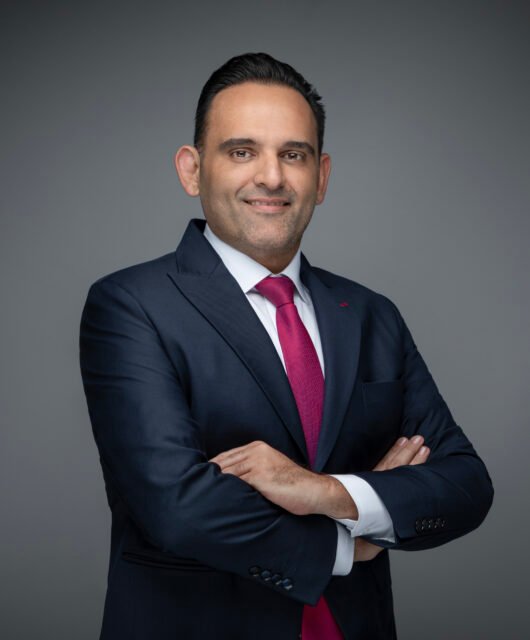Purpose | Are Agencies slow off the heels?, By epicworld’s Vaquas Alvi

Over the past few years, the concept of “purpose” has emerged as a central topic of discussion in marketing and advertising circles, award shows, multinational corporations, and among top executives. Numerous people have played a role in bringing purpose to the forefront of strategic thinking, but my personal journey into the world of purpose can be attributed to two inspiring individuals: Simon Sinek and Scott Godson.
Simon Sinek’s transformative TED Talk, “Start with Why,” from 2009 elucidates the idea that an organisation or individual’s “why” is the most powerful message they can communicate, as it inspires others to take action. Through his books, “Start with Why,” “Find Your Why,” “Leaders Eat Last,” and “The Infinite Game,” Simon provided with invaluable insights and learnings on the concept of purpose.
Simon’s talk introduced a new dimension to strategic thinking. It forced me to explore researches and reports from EY, Deloitte, and PwC to further enhance my understanding. These resources allowed me to grasp the concept of purposeful thinking through empirical data, analysis, and insightful observations.
My particular interest lies in exploring the impact of purpose on organisations, brands, and people from the perspective of advertising. During this exploration journey, I got introduced to Scott Godson’s work, a leading authority on activating purpose.
Scott runs Strawberry Frog, the world’s first cultural movement agency. What caught my attention about Scott was how his agency incorporated purposeful thinking into global brands through internal and external movements.
Scott’s books, “Uprising” & “Activating Brand Purpose,” further exemplify the practical application of purpose, featuring numerous case studies that span from B2B to B2C companies.
Scott and his team’s latest venture, the Purpose Power Index, delves into people’s true thoughts and emotions concerning brand purpose. The study effectively demonstrates a brand’s societal role and its impact beyond mere profit generation. It doesn’t mean that the brands were not profitable; in fact, all of them registered growth and increase in their profits.
The influence of both Simon Sinek and Scott Godson on my progress as an advertising professional cannot be overstated. Purpose became my guiding star to inspire optimism in my life and work alike.
It surprises me that purpose is still met with scepticism. Throughout history, visionary leaders like Martin Luther King Jr., Nelson Mandela, and Muhammad Ali inspired movements that challenged the norm and the status quo.
In the business world, modern leaders such as Steve Jobs (Apple), Blake Mycoskie (Toms), and Richard Branson (Virgin) are universally admired for their tenacity and purpose. It is these leaders who motivate and inspire us to strive for a better world.
Nike, Dove, Always and Patagonia, win our hearts by taking a stand and leading conversations for just causes. We often reference their work in our presentations, yet we hesitate to take the leap of faith in our own endeavours.
The worst offenders are marketing leaders and agencies that attempt to equate corporate social responsibility (CSR) with purpose. Such superficial labelling does a disservice to the very definiton of purpose.
If employees fail to witness purpose in action within the organisational culture or through the values they embody and only sees in the ad and CSR, it means something is wrong.
Purpose is the pivot upon which organisations build their product strategy, sourcing, product development, innovations, employee engagement, and corporate social responsibility. Purpose drives internal culture, leading to meaningful actions that resonate externally.
For discussions on purpose to succeed, they must be based on a shared belief among leaders. Agencies cannot expect brand teams, with whom they interact the most, to delve into the “why” of the entire organisation. Not because these teams cannot discuss the topic but because they have limited influence over the organisation as a whole.
Agencies that complain about consultancies encroaching on their business are merely being lazy and deflecting blame. If agency leaders cannot engage in conversations about purpose, sustainability, cultural change, and their contributions to growth, they should not lament their lack of influence at the decision-making table.
However, when a brand has a well-defined purpose and brand managers seek commercial solutions, agencies must bring that purpose to life, thereby influencing purchasing decisions and impacting behaviour.
In today’s business landscape, purpose is not merely a nice-to-have but a must-have and a business imperative. However, if pursued hastily and within the confines of a boardroom led by committees, I fear purpose will suffer the same fate as mission statements, vision, and values— decorative elements displayed on walls and websites, lacking true meaning and impact.
Purpose is always co-created with all the stakeholders to give a shared ownership. A sense of purpose provides direction, motivation, and a vision. When everyone in an organisation is aligned around a common goal, it creates unity and momentum that drives growth.
I firmly believe that purpose is more than just a buzzword; it is a vital ingredient for growth and success. Companies with a clear purpose consistently outperform their competitors in areas such as employee engagement, customer loyalty, and financial performance. Purpose-driven companies are revolutionising the world and making a meaningful difference in their communities. In turn, they reap the rewards of growth, innovation, and profitability.
Creative agencies possess the extraordinary power of storytelling, enabling them to communicate purpose in an engaging and believable manner.
Advertising agencies must invest time to understand how purpose is the catalyst for the brands and people to grow.
It’s time to wake up and embrace reality.
If agencies are not quick off the heels, consultants are already gaining ground.





